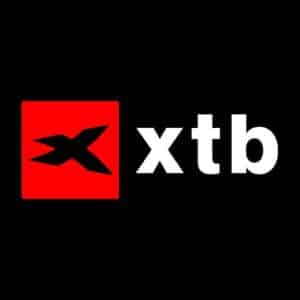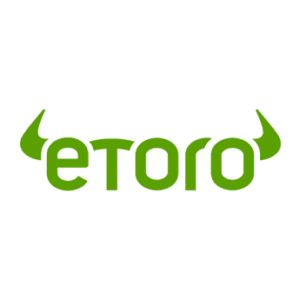Commodity Brokers
OANDA is a globally recognized forex and CFD broker, founded in 1996 and headquartered in New York, USA. Regulated by top-tier authorities such as the CFTC, NFA, FCA, ASIC, and MAS, OANDA offers a secure and transparent trading environment. The broker provides access to a wide range of trading instruments, including forex pairs, commodities, indices, metals, cryptocurrencies, and shares, supported by advanced platforms like fxTrade, MetaTrader 4 (MT4), and TradingView.
★★★★★
More details +
Trust & Regulatory Status
4.8
Tradable Instruments
5
Fees
6
Account Types
6.3
Platform and Tools
5.8
Deposit and Withdrawal
6.2
Customer Support
5.9
Research and Education
6.4
Mobile Trading
6.6
Security
6.1
PROS:
- Strong Regulatory Oversight: Regulated by top-tier authorities such as the CFTC, NFA, and FCA, ensuring a secure trading environment.
- Global Presence: Offices in major financial hubs worldwide, offering localized support and services.
- User-Friendly Trading Platforms: Proprietary fxTrade platform with advanced charting tools; also supports MetaTrader 4 (MT4) and TradingView integrations.
- Transparent Pricing: Offers competitive spreads with no hidden fees, providing clear cost structures for traders.
- Wide Range of Instruments: Access to over 68 currency pairs, CFDs, and spot cryptocurrency trading through Paxos.
- Award-Winning Broker: Recognized for excellence with multiple industry awards, including “Best US Forex Broker” and “Most Popular Broker” on TradingView.
CONS:
- Limited Product Range Beyond Forex and CFDs: Does not offer traditional stocks, bonds, or mutual funds, limiting diversification for multi-asset traders.
- No Guaranteed Stop-Loss Orders: Increases potential risks during volatile market conditions.
- Higher Minimum Spreads on Some Assets: Although competitive, spreads can be wider for less liquid assets compared to specialized brokers.
- Limited Customer Support Hours: While support is available, it may not cover all time zones equally, potentially impacting global traders.
- No Negative Balance Protection for U.S. Clients: This feature is unavailable for U.S. traders, which may increase risk during extreme market movements.
XTB is a well-regarded global broker founded in 2002, headquartered in Warsaw, Poland, and known for its powerful and user-friendly trading platform, xStation 5. XTB offers traders access to a wide range of over 2100 financial instruments across forex, CFDs, stocks, commodities, and cryptocurrencies. The broker is regulated by several top-tier authorities including the FCA and CySEC, ensuring a secure and transparent trading environment.
★★★★★
More details +
Trust & Regulatory Status
5.3
Tradable Instruments
3.8
Fees
3.9
Account Types
5
Platform and Tools
5
Deposit and Withdrawal
6.8
Customer Support
2.4
Research and Education
5
Mobile Trading
3.7
Security
2.6
PROS:
- Advanced Trading Platform: XTB's xStation 5 is highly acclaimed for its user-friendly interface, cutting-edge technology, and comprehensive analytical tools, which enhance trading effectiveness and user experience.
- Extensive Range of Instruments: Traders have access to over 2100 instruments across various asset classes, including forex, indices, commodities, stock CFDs, and cryptocurrencies, catering to diverse trading preferences.
- Robust Educational Resources: XTB provides a wealth of educational materials, such as webinars, seminars, trading courses, and articles, supporting traders from novice to expert levels.
- Strong Regulatory Framework: XTB is regulated by major financial authorities like the FCA and CySEC, ensuring a high level of security and fair trading practices.
- Excellent Customer Service: Known for its responsive and helpful customer support available in multiple languages, enhancing the trading experience for global clients.
CONS:
- Inactivity Fees: XTB charges fees for accounts that are inactive for extended periods, which might be a concern for infrequent traders.
- Limited Product Range in Some Regions: Depending on the trader’s location, some of XTB’s products, particularly certain stock CFDs and ETFs, may not be available.
- Withdrawal Fees: There are fees associated with bank wire withdrawals, which might be a drawback for some traders preferring this withdrawal method.
eToro is a globally recognized social trading platform, founded in 2007 and regulated by top-tier authorities like the FCA (UK), ASIC (Australia), and CySEC (EU). It offers access to over 7,000 financial instruments, including stocks, forex, cryptocurrencies, commodities, ETFs, and indices. eToro’s standout feature is its CopyTrader™, allowing users to replicate the strategies of successful traders. The platform caters to both beginners and experienced investors with its user-friendly interface and advanced trading tools.
★★★★★
More details +
Trust & Regulatory Status
3
Tradable Instruments
4.2
Fees
3.9
Account Types
5
Platform and Tools
5
Deposit and Withdrawal
5
Customer Support
5.9
Research and Education
5.8
Mobile Trading
6.4
Security
6.6
PROS:
- User-Friendly Interface: Simple, intuitive platform suitable for both beginners and experienced traders
- CopyTrader™ Feature: Allows users to copy top-performing traders automatically, making it easy for novices to start
- Wide Range of Assets: Trade over 7,000 financial instruments, including stocks, forex, crypto, ETFs, and commodities
- ETORO.COM
- .
- Zero Commission on Stocks: Enjoy 0% commission on stock trades, increasing cost-efficiency
- Regulated Broker: Licensed by top-tier regulators like the FCA, ASIC, and CySEC, ensuring a secure trading environment
- Social Trading Community: Engages users with social features for sharing strategies and insights
- Mobile Trading App: Trade anytime, anywhere with a highly functional mobile app
CONS:
- High Non-Trading Fees: Charges for withdrawals ($5 fee) and inactive accounts
- Limited Customization: Some advanced traders may find the charting tools less customizable compared to platforms like MetaTrader
- Restricted Countries: Not available in certain regions due to regulatory constraints.
- Crypto Fees: Higher spreads and fees for cryptocurrency trades compared to specialized crypto exchanges
Saxo Broker is a globally recognized online trading platform headquartered in Denmark, known for its extensive range of financial instruments and advanced trading tools. Saxo provides access to over 71,000 instruments including forex, stocks, commodities, and bonds across various international markets. The broker is celebrated for its robust, user-friendly platforms such as SaxoTraderGO and SaxoTraderPRO, tailored to both novice and professional traders.
★★★★★
More details +
Trust & Regulatory Status
3.5
7.2
Fees
6.7
Account Types
5
Platform and Tools
5
Deposit and Withdrawal
6.5
Customer Support
5
Research and Education
0.4
Mobile Trading
3.1
Security
2.9
PROS:
- Extensive Product Range: Saxo Broker offers an impressive selection of financial instruments, including over 71,000 global instruments such as stocks, forex, bonds, and derivatives, catering to diversified trading preferences.
- Advanced Trading Platforms: The broker provides advanced, award-winning trading platforms like SaxoTraderGO and SaxoTraderPRO, which offer comprehensive tools and analytics suitable for both novice and experienced traders.
- Competitive Pricing: Saxo is known for its competitive pricing structure, which includes low commissions and tight spreads, enhancing trading profitability for its clients.
CONS:
- Complexity for Beginners: The wide range of tools and detailed platform features may be overwhelming for beginners, making the initial learning curve somewhat steep.
- Account Maintenance Fees: Some account types come with maintenance fees or minimum balance requirements, which may not be ideal for all traders, particularly those with lower trading volumes or beginners.
- Customer Support Variability: While generally robust, the response times and effectiveness of customer support can vary, especially during peak trading hours or for less common inquiries.
Olymp Trade is an established online trading platform that offers various financial instruments across forex, stocks, cryptocurrencies, and commodities. Founded in 2014, it is designed to be accessible to traders of all levels, featuring an intuitive interface, comprehensive educational resources, and robust customer support. Olymp Trade is regulated by the International Financial Commission, ensuring a high standard of security and transparency in its operations. The platform provides several trading interfaces including a web-based portal, a desktop application, and mobile apps for iOS and Android, catering to the diverse needs of its global clientele. Olymp Trade's integration with MetaTrader 4 also appeals to more advanced traders looking for powerful analytical tools and automated trading capabilities.
★★★★★
More details +
Trust & Regulatory Status
5.5
Tradable Instruments
6.5
Fees
5
Account Types
6
Platform and Tools
6.5
Deposit and Withdrawal
7
Customer Support
7.5
Research and Education
7.5
Mobile Trading
7
Security
7
PROS:
- Olymp Trade's platform is highly intuitive, making it easy for both beginners and experienced traders to navigate and manage their trades effectively.
- A wide range of educational materials and webinars are available, helping users to continuously improve their trading skills and knowledge.
- Offers a demo account with virtual funds, allowing traders to practice and test strategies without financial risk.
- As a member of the International Financial Commission, Olymp Trade provides an added layer of security and operational transparency.
CONS:
- While Olymp Trade offers a variety of trading options, some users might find the asset selection less extensive compared to other major brokers.
- Services are not available in certain countries, which limits the broker's accessibility for traders in those regions.
- Some users have reported delays in withdrawal processing, although these issues are typically resolved promptly by customer support.
- There are fees for accounts that remain inactive for an extended period, which might discourage sporadic trading.







